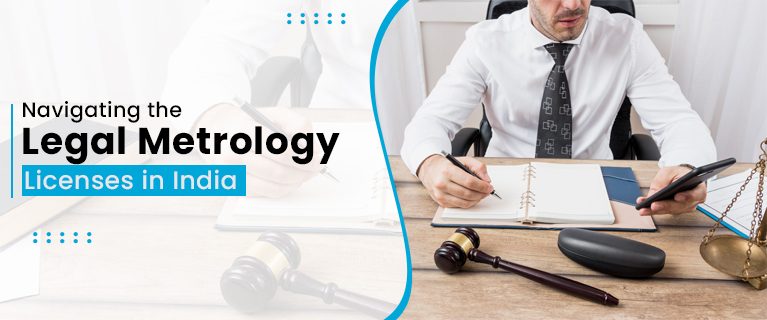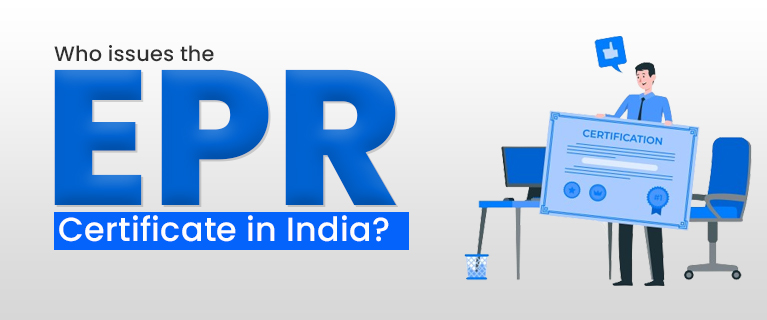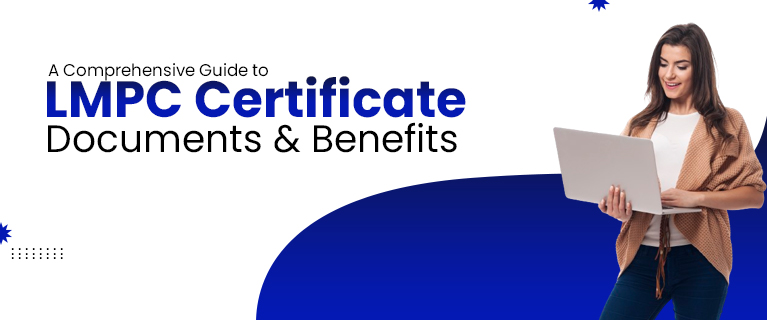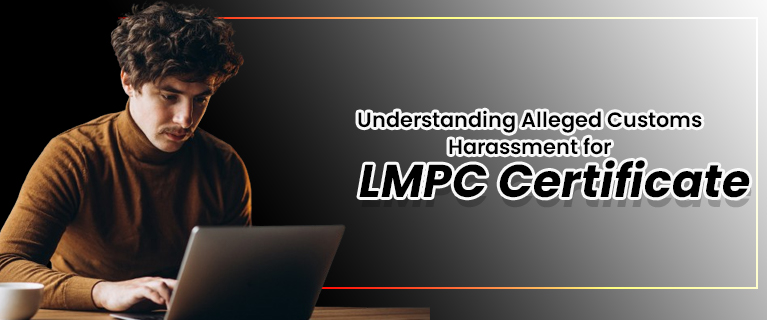Navigating the Legal Metrology Licenses in India
In the complex landscape of trade and commerce, ensuring fair and accurate measurements is paramount. Legal metrology serves as the foundation for maintaining uniformity and transparency in weights and measures, safeguarding both consumers and businesses. In India, legal metrology licenses play a crucial role in regulating the use of weighing and measuring instruments, as well as the packaging and labelling of goods. In this blog post, we'll delve into the intricacies of legal metrology licenses in India, exploring their significance, types, and requirements.
Understanding Legal Metrology Licenses:
Legal metrology licenses are issued under the Legal Metrology Act, 2009, and the Legal Metrology (Packaged Commodities) Rules, 2011, to ensure compliance with standardized measurement practices and consumer protection laws. These licenses govern various aspects of trade, including the use of weighing and measuring instruments, packaging, and labelling of goods sold in India. Obtaining the necessary licenses is mandatory for businesses involved in manufacturing, importing, selling, or servicing weighing and measuring instruments, as well as packaging and labelling of commodities.
In the vast realm of trade and commerce, where transactions occur on a daily basis across various sectors, the importance of fair and accurate measurements cannot be overstated. Legal metrology stands as the bedrock upon which this precision is built, serving as the guardian of uniformity and transparency in weights and measures. In the vibrant tapestry of India's economic landscape, legal metrology licenses play a pivotal role in upholding these standards, ensuring a level playing field for both consumers and businesses alike.
Read also this -: Legal Metrology Certificate- Process, Validity and RenewalAt its core, legal metrology encompasses the science of measurement and its regulation within a legal framework. It encompasses a wide array of activities, including the calibration and verification of weighing and measuring instruments, as well as the meticulous oversight of packaging and labelling practices. By establishing clear guidelines and standards, legal metrology seeks to foster trust and reliability in commercial transactions, thereby bolstering consumer confidence and facilitating fair competition.
Within the Indian context, legal metrology licenses assume a paramount significance in the regulatory framework. They serve as the primary mechanism through which authorities govern the deployment and usage of weighing and measuring instruments, ensuring their accuracy and compliance with prescribed standards. Moreover, these licenses extend their purview to encompass the packaging and labelling of goods, imposing stringent requirements to safeguard against misleading practices and protect the interests of consumers.
The landscape of legal metrology licenses in India is diverse, reflecting the multifaceted nature of trade and commerce in the country. Various types of licenses exist to cater to different aspects of measurement and regulation, ranging from manufacturer licenses for the production of weighing and measuring instruments to dealer licenses for their distribution and sale. Additionally, specialized licenses may be required for specific activities such as the packaging of commodities or the operation of weighing bridges, further underscoring the comprehensive nature of legal metrology oversight.
Obtaining a legal metrology license in India entails adherence to a set of stringent requirements and procedures. Applicants must demonstrate compliance with technical specifications and procedural norms laid down by regulatory authorities, ensuring the accuracy and reliability of their instruments and practices. Furthermore, periodic inspections and audits are conducted to verify continued compliance, thereby reinforcing the integrity of the regulatory framework.
In essence, legal metrology licenses serve as a cornerstone of regulatory governance in India's commercial landscape, fostering trust, transparency, and fairness in trade practices. By upholding rigorous standards and oversight mechanisms, they play a pivotal role in safeguarding the interests of both consumers and businesses, ultimately contributing to the vibrancy and integrity of the national economy.
Types of Legal Metrology Licenses:
1. Manufacturing License:
Manufacturing licenses are essential for businesses engaged in the production or assembly of weighing and measuring instruments, including but not limited to weighing scales, meters, and weighing bridges. These licenses are regulated by the Legal Metrology Department, which sets out specific standards and specifications that manufacturers must adhere to. To obtain a manufacturing license, companies must demonstrate that their production processes meet the prescribed standards, ensuring the accuracy, reliability, and consistency of the instruments they manufacture. Compliance with these standards is crucial to maintain the integrity of measurements in commercial transactions and to protect consumers from inaccurate or faulty instruments.
Read also this -: How to get a Legal Metrology Certificate for Import Hassle-Free2. Dealer License:
Dealer licenses are required for entities involved in the sale, purchase, or distribution of weighing and measuring instruments. Dealers play a vital role in the supply chain, ensuring that instruments traded meet legal metrology requirements. To obtain a dealer license, entities must demonstrate their commitment to compliance by ensuring that all instruments in their inventory undergo verification and stamping by authorized metrology officials. This process helps to verify the accuracy and reliability of the instruments, thereby safeguarding the interests of both buyers and sellers in commercial transactions.
3. Repairer License:
Repairer licenses are granted to individuals or businesses specializing in the repair, maintenance, or calibration of weighing and measuring instruments. These licenses are essential to ensure that instruments remain accurate and reliable throughout their lifecycle. Repairers must possess the necessary technical expertise and facilities to perform repairs and calibrations to the prescribed standards. By obtaining a repairer license, businesses demonstrate their commitment to upholding the integrity of measurements and ensuring consumer trust in the instruments they service.
4. Importer License:
Importer licenses are mandatory for businesses importing weighing and measuring instruments into India. Importers play a crucial role in ensuring that imported instruments meet the prescribed standards and undergo verification and stamping by authorized metrology officials before being sold or used for trade. Compliance with importer license requirements helps to prevent the entry of inaccurate or faulty instruments into the market, thereby protecting consumers and maintaining the integrity of measurements in commercial transactions.
5. Packer License:
Packer licenses are required for entities engaged in packaging commodities for sale. Packagers must comply with packaging and labeling regulations, including mandatory declarations such as net quantity, maximum retail price (MRP), and consumer information. Obtaining a packer license ensures that packagers adhere to standard packaging practices and provide consumers with accurate and transparent information about the products they purchase.
6. Repacker License:
Repacker licenses are necessary for businesses involved in repackaging pre-packaged commodities. Repackers must ensure that the repackaged commodities comply with legal metrology requirements and include accurate labeling and declarations. Repackaging activities must be conducted in accordance with prescribed standards to maintain the accuracy and integrity of measurements, thereby protecting consumers from misleading packaging practices. Obtaining a repacker license demonstrates a commitment to compliance and consumer protection in repackaging activities.
Requirements for Obtaining Legal Metrology Licenses:
To obtain legal metrology licenses in India, businesses and individuals must fulfill certain criteria and comply with regulatory requirements:
1. Application Process:
Applicants must submit a duly filled application form along with the necessary documents, including proof of identity, address, ownership, and business registration documents.
2. Technical Specifications:
For manufacturing, repairer, and importer licenses, applicants must provide technical specifications and details of the weighing and measuring instruments or packaging machinery they intend to manufacture, repair, or import.
3. Infrastructure and Facilities:
Businesses applying for licenses must have appropriate infrastructure, facilities, and equipment to carry out manufacturing, repair, distribution, or packaging activities in compliance with legal metrology standards.
4. Compliance with Standards:
Applicants must ensure that the weighing and measuring instruments, packaging materials, and labeling comply with the standards and specifications prescribed by the Legal Metrology Department.
5. Verification and Stamping:
Businesses dealing with weighing and measuring instruments must ensure that the instruments are verified and stamped by authorized metrology officials at regular intervals to maintain accuracy and reliability.
Read also this -: The Role of LMPC Certificate Consultant Firms6. Record-keeping and Reporting:
License holders are required to maintain accurate records of transactions, repairs, calibrations, and verifications, as well as submit periodic reports to the Legal Metrology Department as per the prescribed formats and timelines.
Conclusion:
In conclusion, legal metrology licenses are essential for ensuring fair trade practices, consumer protection, and regulatory compliance in India's marketplace. By obtaining the necessary licenses and adhering to prescribed standards and specifications, businesses can contribute to a transparent and trustworthy trading environment while safeguarding the interests of consumers. As India continues to evolve as a global economic powerhouse, adherence to legal metrology regulations remains paramount for sustainable growth, competitiveness, and integrity in trade and commerce.










